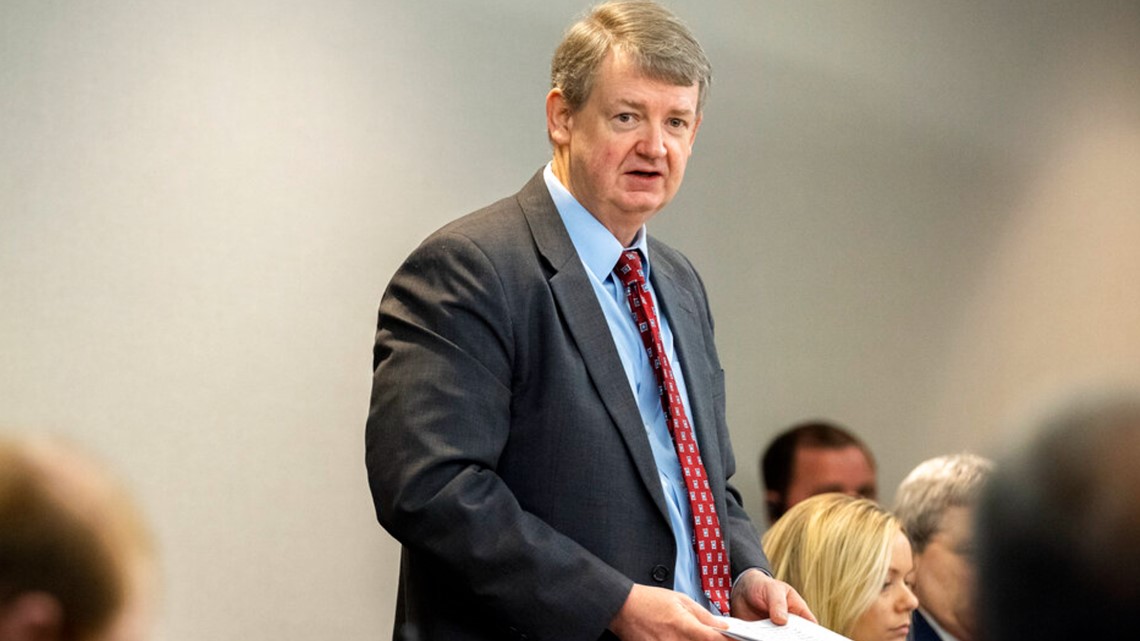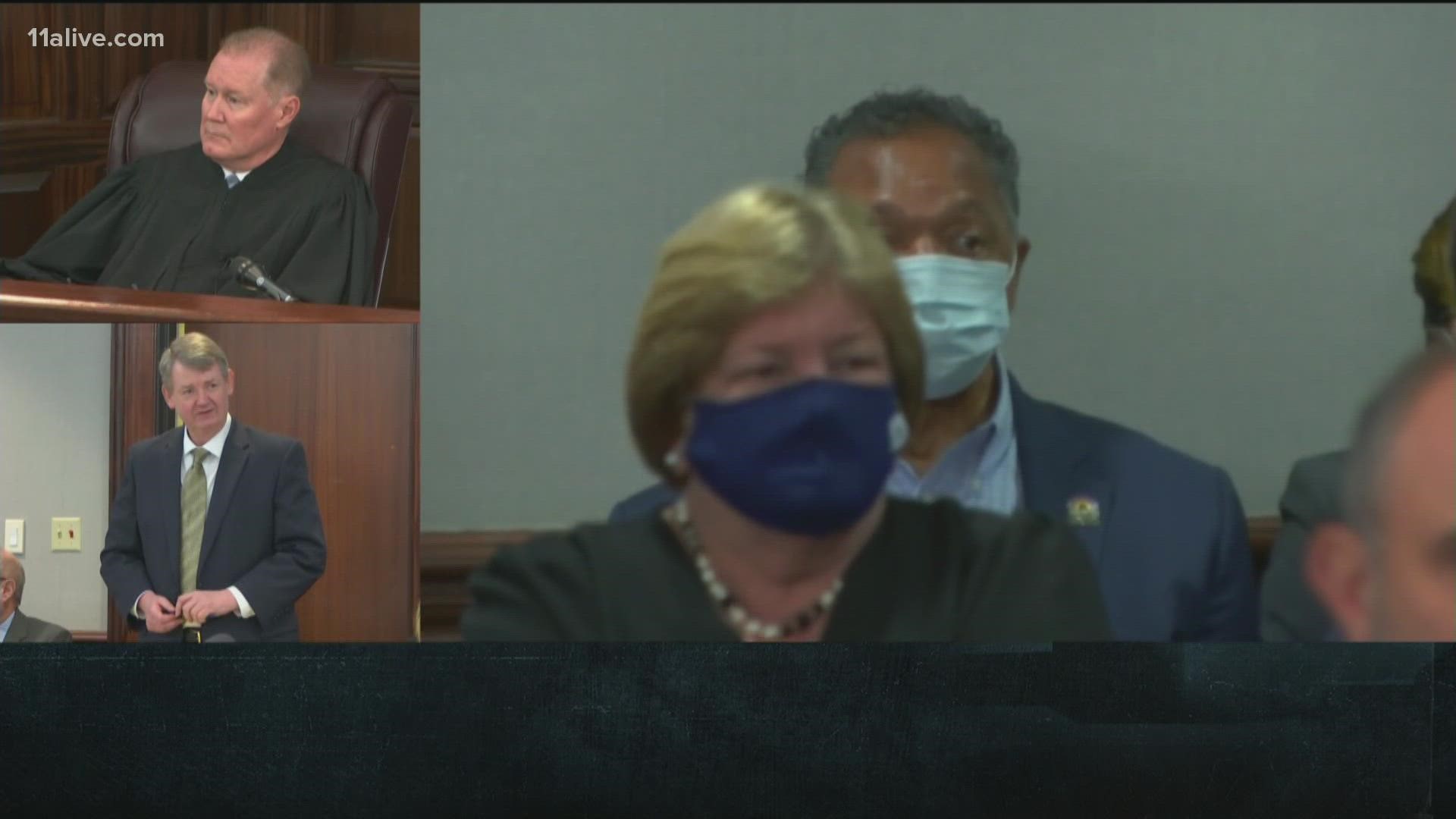BRUNSWICK, Ga. — Before the jury could be brought in Wednesday, attorneys for the three white men facing murder charges in the death of Ahmaud Arbery had several requests ahead of presenting the defense’s case in the trial.
Judge Timothy Walmsley shot them all down.
Defense lawyers for father and son duo Gregory and Travis McMichael and their neighbor, William “Roddie” Bryan, spent much of the morning trying to prove some of the charges the men are facing were not relevant to the case or to each defendant. After arguing their case for two hours and the state giving a response, the judge ultimately denied their motion for a directive verdict, leaving it up to the jury to decide.
With the jury still not allowed in the courtroom, Attorney Kevin Gough, representing Bryan, once again requested a mistrial. Gough mentioned Rev. Jesse Jackson sitting in the gallery, again.
Jackson started sitting with the Arbery family this week after Gough previously fussed over Rev. Al Sharpton's presence in the courtroom. Bryan's attorney garnered national attention last week for mentioning the presence of Black pastors in the courtroom during the trial, even going as far as calling their presence intimidating and 'mob-like.'
RELATED: Jesse Jackson, weeping and a motion for mistrial take center stage at Ahmaud Arbery death trial
Before commenting on Gough’s request on Wednesday, the judge asked the lawyers representing the McMichaels if they felt the same.
Jason Sheffield, representing Travis McMichael, said it’s not their presence that is disruptive but how their presence could impact the trial.
“They represent a national conversation that is for the conviction of the defendants,” Sheffield said. “That is an improper influence for the jury.”
Sheffield said he would not go as far as to request a mistrial but hoped the judge could remedy the situation by directing guests of concern to the overflow room where the general public is gathering.
The judge promptly denied Gough’s request for a mistrial, saying the jury was vetted through the court and shouldn’t be influenced by certain community members sitting with the Arbery family.


“I already ruled upon the presence of certain individuals in the court,” the judge said. “I’m not going to go back over that.”
Judge Walmsley said the court put various restrictions during the trial to help remain the integrity of the proceedings.
There are limits on what people can wear in the courtroom such as no buttons, face masks that are not for COVID purposes, and an order in place that governs seating in the courtroom and in the overflow room.
“Those rules were to help address some of the concerns,” the judge said. “I’m comfortable that that process has resulted in a panel that is willing to listen to the evidence and only the evidence that is presented in this courtroom.”
With little deliberation, the judge said he was not going to do anything further about guests in the courtroom and asked the defense to prepare their opening statements. He brought in the jury around 11:30 a.m.

